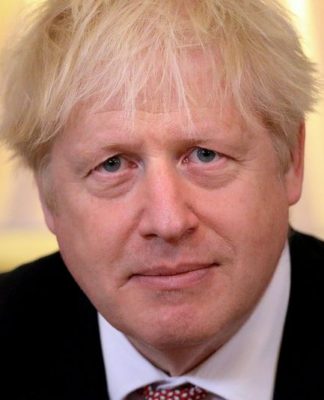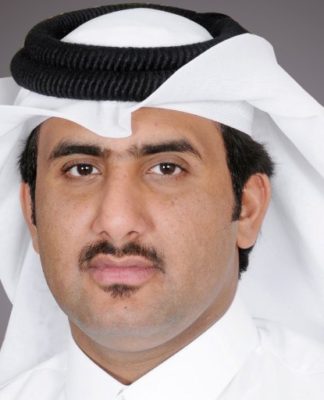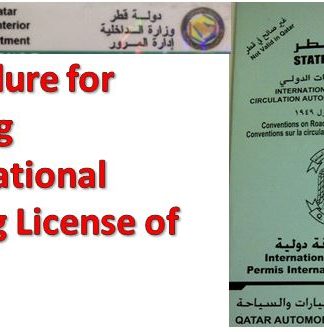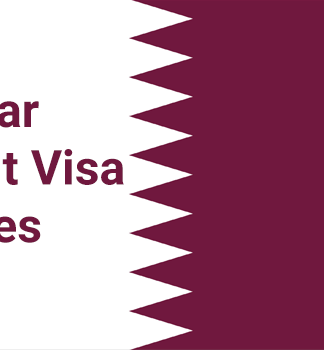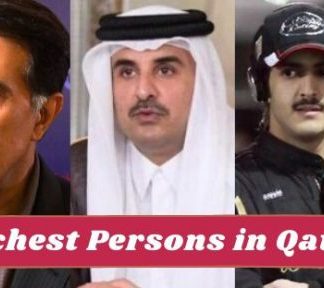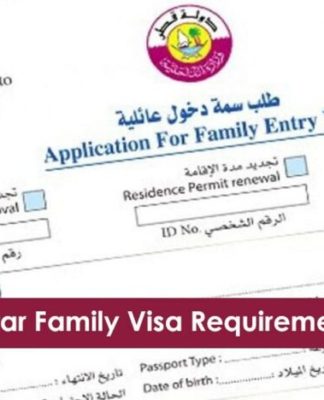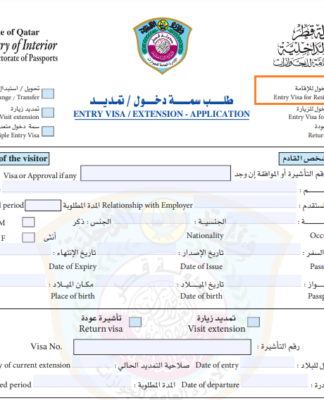Warning: article contains distressing content
THE WORLD’S WORST HUMANITARIAN CRISIS
By Alex Crawford, special correspondent, and Zein Ja’ Far, Middle East news editor
There is not a corner of this extraordinary country which hasn’t been impacted by conflict. From the mountainous capital Sanaa in the north, to the southern port city of Aden and oil-rich Marib in the east.
Yemen, which was already one of the poorest countries in the world, has now suffered eight years of civil war. Tens of millions of people have been plunged into the world’s worst humanitarian crisis.
Its long-ruling dictator, Ali Abdullah Saleh, was in power for 33 years before Yemenis deposed him in 2011, after a wave of popular uprisings spread across the region. Saleh handed over power to his deputy, Abd Rabbu Mansour Hadi, and fled to Saudi Arabia.
The new government struggled to garner support from the country’s political and religious groups and tribes. In 2015, Houthi rebels backed by deposed ex-president Saleh overran the capital Sanaa and cities across the country.
Saudi Arabia formed a military coalition of nations seeking to return the internationally backed government to power and push the Houthis back. With support from the UAE, US and UK, the Saudi-led coalition embarked on a bombing campaign which led to thousands of civilian deaths and destroyed much of the civilian infrastructure in northern Yemen.
Eight years on, and the Houthis still control Sanaa, most of northern Yemen as well as parts of Marib city and the country’s third city, Taiz. Now, a surprise agreement between regional rivals, Saudi Arabia and Iran, has raised hopes that peace might be on the horizon, but inside this conflict-ravaged nation, that still feels like a distant dream.
‘WHEN WILL THEY FIX MY SIGHT?’
A teenager writhes in agony in a hospital bed. His body is peppered with shrapnel and his arms are wrapped in blood-stained bandages. He has lost both his hands and the sight in his right eye.
The pain is so bad he can barely speak, but he is desperate to know what’s wrong with his eyes. He cries out for more medicine.
“It’s ok, my son. Be brave. You just need to rest.” Khatab’s father Sultan tries to reassure him but he is desperately worried – the specialist treatment his son needs is not available in Yemen.
Just four days earlier, Khatab (pictured below) was clearing rubbish from outside a shop selling gas canisters in the city of Taiz. The 19-year-old was scooping up plastic bottles and discarded drink cartons when an explosive he’d inadvertently picked up, blew up in his arms.
Teenager wearing bandages lying on a bed
He is one of thousands across Yemen to be maimed and mutilated by unexploded weapons and land mines. Some are mortars or rockets fired between rival groups fighting over residential streets, others are mines and booby traps deliberately left behind by retreating forces.
Landmines and other explosive devices killed or injured a child every two days during 2022, according to analysis by the Save The Children organisation.
At another hospital across the city, they can’t make prosthetics fast enough to cope with the growing demand.
A man making a prosthetic foot
Anwar Abdullah is one of the dozens of engineers helping to manipulate plaster and plastic into replacement limbs. Like many of his colleagues, he spent years training abroad in Cambodia, one of the most heavily mined nations on earth.
“Making legs and feet are easier for us here but hands are more difficult. We mostly do cosmetic hands. The electronic hands are very expensive and we do not have the materials here to make them”.
Anwar Abdullah, prosthetic limb engineer
The hallway of this centre in the Al Thawra hospital is full of children waiting to have their artificial limbs fitted.
Among them is 10-year-old Abdullah, who grins as he describes his ambition to become a professional footballer (his hero is Cristiano Ronaldo) or failing that, a taekwondo champion when he grows older.
He demonstrates his love of martial arts, enthusiastically showing us his punches and blocks while one of the doctors examines his left leg which is amputated below the knee.
Abdullah and a friend were collecting water on the outskirts of Taiz when a mortar round landed near him.
“I felt a boom and when I woke up, I saw blood and a piece of my leg, but I never cried.”
Abdullah, 10
TAIZ: A CITY TORN IN HALF
Taiz is a city torn in two, inside a battle-weary country. From a steep hillside overlooking it, a long strip of brown vegetation cuts through a mass of stone homes and buildings. It’s no man’s land.
On one side, the Iranian-backed Houthi rebels position snipers in high rise buildings to pick off anyone who strays too close to their territory.
On the other side, the internationally-recognised government and the Yemeni army hold the territory, supported by the Saudi-led coalition. The coalition has been accused by human rights groups of killing civilians and bombing vital infrastructure. On both sides, there is abundant suffering.
Landlocked and surrounded by treacherous mountain paths and dusty roads, Taiz is uniquely vulnerable to siege.
The Houthi militia has choked the city of goods, trade, even water. The homes and buildings near the “frontline” are pockmarked with the scars of battle, huge holes blasted through the walls of shopping centres and mosques.
In the streets and buildings once occupied by the Houthis are left an unknown number of mines. They buried them in back gardens and in a particularly cruel twist, they placed explosives and mines inside the ovens of homes they previously camped in.
It means the city has an obscene number of amputees, often children and women, and often double amputees. In one prosthetics centre we visited, the director told us they’d helped more than 1,000 people since the start of the war.
But there’s also plenty of evidence of indiscriminate air strikes mounted by the coalition – on civilian targets – homes, shops, even schools and universities. Both acts constitute potential war crimes.
A group of people, some wearing bomb safety gear
But there are signs of hope. The two regional powers (Saudi Arabia and Iran) who’ve been supporting the differing warring factions have agreed to resume ties in a dramatic diplomatic breakthrough.
In the lead-up to this agreement, a UN-brokered truce last April was extended several times but while this led to a significant drop in fighting, air strikes and shelling nationwide, it hasn’t – and still isn’t holding in Taiz.
On the ground in Taiz, we found evidence of several violations in and around the city with residents telling us about multiple instances of shelling and sniper fire. Yemen may be the closest it’s been to a potential peace deal but the misery for the people of Taiz, for now, continues unabated.
Boy
More than 200,000 of the city’s residents have been forced out of their homes by the insecurity. Those still there, living on the frontlines, do so because they have no alternatives. They’re poor, desperate and jobless. They camp in broken, bombed and busted buildings, hemmed in by snipers, with little to eat and little to drink.
Back in the hospital, a pensioner cries out in pain from the bullet a sniper has fired into her left shoulder. It narrowly missed her heart.
She was collecting water around no man’s land when the sniper picked her off. Even so, she is still defiant. “I will never leave my home,” she says. “Never.”
A person in a helmet looks for mines
HUMAN RIGHTS CRACKDOWN
Ahmed Hajar is a well-known Yemeni actor and comedian. His videos on YouTube rack up tens of thousands of views covering topics ranging from the World Cup in Qatar to social taboos.
Although no stranger to tackling controversial issues, Ahmed posted a video in December which would change his life forever. With his voice reaching a furious falsetto, he claimed that everyone he spoke to was fed up with the behaviour of the Houthi authorities controlling Yemen’s capital city, Sanaa.
“From the young to the old, everyone complains that Ansar Allah [the Houthi] steals, they scam, they take from people’s salaries, they take away people’s rights… The people are fed up with you Ansar Allah. They are fed up with you Houthis,” said Ahmed (pictured below).
Man pointing
It is a view shared by many people we speak to across Yemen, including in the north of the country, which is firmly under the control of the Iran-backed militia. But it’s rare to hear such stinging criticism publicly in Houthi strongholds.
Days later a group of armed men grabbed Ahmed as he was walking in the Yemeni capital and he disappeared. Other local YouTube stars showed their solidarity by posting videos defending Ahmed and demanding his release.
One of them, Mustafa al Murmari, accused the Houthis of corruption in a video posted to his 2.2 million subscribers. This week all four men (pictured below) were sentenced to between six months and three years in prison, made to pay a hefty fine and forced to appear in confessions, while in detention, which were broadcast on TV.
Four men in blue jumpsuits behind bars
Human rights groups condemned the arrests and said it was indicative of a wider crackdown on opposition voices in Houthi-controlled areas of Yemen.
The group sentenced to death four journalists after holding them since 2015 on trumped-up charges of “spying for Saudi Arabia” and spreading false information. Hamza Al Jubeyhi is also a journalist and was held in the same prison before he was released in a prisoner exchange. He describes the abuse and torture he and the four men received in prison.
“The worst [form of torture] is when they handcuff you and hang you from the ceiling and leave your legs to dangle in the air for four or five hours every session… that would lead to a partial paralysis.”
Hamza Al Jubeyhi, former Houthi prisoner
We ask him if he has any hope for peace after so many years of conflict?
“When it comes to the Houthis they are not men of peace; they are bound by war. They are men of war, not peace. Peace kills them. They don’t believe in peace. They believe in guns, power and violence,” he says.
It’s unsurprising that a former prisoner would paint such a damning assessment but, as their hold on power tightens, the Houthis have become increasingly resistant to any form of criticism.
Helicopter flies over city
THE PLIGHT OF WOMEN
The Houthis have also recently arrested businessmen, activists and even models. Intisar Al Hammadi (pictured below), 20, was busy building her social media following. She posed without the traditional headscarf for local fashion designers, wedding photographers and sang along to Arabic pop songs on TikTok.
Now she faces five years in prison for “committing indecent acts and drug possession”. It’s a case which again has drawn widespread condemnation and baffled civilians.
Why, after so many years of bombing, blockade, humanitarian crisis and disaster, would the authorities want to further suffocate ordinary people?
Hunger, anarchy and the proliferation of weapons and bombs has meant a deterioration of liberties and the spread of corruption and injustices.
There is no independent media to speak of with journalists on both sides being threatened, intimidated and jailed.
Hanedi Anam (pictured above), a journalist and women’s rights activist, tells us how posting a picture with her husband on Valentine’s Day led to a torrent of abuse online and a targeted campaign against her – led by senior religious leaders.
“There was a lot of anger from everyone, violent posts were sent to me. There was even a campaign by imams (religious leaders) and journalists… there was very little acceptance that a woman and a man should be sharing these kinds of pictures.”
Her friend, who wants to remain anonymous, nods in agreement.
“Every single woman here in Yemen is suffering. Whether they’re working or going outside they are suffering, struggling, facing too many difficulties to deal with society… every single day.”
Protesters raise their hands in the air
Protests in the city of Sanaa in 2012
PROSPECTS FOR PEACE?
“It never seems to stop. When I lose a baby, I just go home and cry,” Dr Wala Abdulwahab says as she shakes her head. “It’s hard”.
The 22-year old paediatrician is walking us through the malnutrition ward at Al Sadaqa hospital in Aden.
Dr Wala has spent her entire adult life studying, training and now practising medicine in one of the world’s worst humanitarian disaster zones.
“If this war stopped we wouldn’t see the number of mothers bringing their children here, we wouldn’t see this shortage of food and the difficulty for people to live,” she says.
Toddler lying down with a feeding tube
She takes me into one of the rooms where three-year-old Saba (pictured above) lies on a bed covered in skin lesions from severe acute malnutrition. Her body is so swollen doctors have placed an IV drip in her head after struggling to find a vein. Her mother, 25-year-old Noura, sits silently next to her, gently stroking her daughter’s foot.
“Before the war we were fine, but now we are struggling,” Noura says.
“We lived in the countryside but we had to flee because of the bombing… I have eight other children and the older ones collect empty bottles to sell for money.”
Noura, 25, mother-of-nine
Noura says on most days she has to chose between buying medicine or food for her kids.
Across the ward, there are other young mothers who are often themselves malnourished and unable to adequately breastfeed as a result.
Anissa Ahmed brought her baby daughter, Eyal, to the hospital four days ago after she began vomiting while suffering from diarrhoea. The three-month-old barely weighs two kilos. All of Anissa’s six children are suffering from, or have been affected by, severe acute malnutrition.
Toddler
The war has plunged the majority of Yemenis into hunger, with 80% of the country’s population in need of food aid.
And now Yemenis are fighting a new front: apathy and aid cuts. Travel a few hours outside of Aden along the country’s west coast and it doesn’t take long to see the impact of cuts in food aid and vital humanitarian support.
At the Al Jesha IDP camp in Al Khokha, dozens of residents rush towards us desperate for help. They haven’t received any food parcels for weeks.
‘We don’t have anything to eat. Not even a little bit of rice. Nothing. We are suffocating, we are dying,’ one man yells.
Another man lifts his shirt to show a rash and sores covering his back and thighs. “I have received no help for this. Look at this! We get no help, no aid,” he says.
Nearly 9,000 people live in this camp. Most of them have fled the port-city of Hodeida, which witnessed some of the fiercest fighting in this war, in 2017.
Humanitarian camp
We visit Badria Mohammed, a 25-year old mother who has given birth to her fourth child just days ago.
She couldn’t afford to travel to the nearest hospital so she delivered her daughter, Ilham, on the dusty floor of a wood and tin shack.
‘There’s a war all around us. It’s really scary… where else can we go’?
Badria Mohammed, mother-of-four
In February 2022, the United Nations’ humanitarian chief Martin Griffiths warned that due to funding shortages the aid operation in Yemen “is about to start doing a lot less”.
The World Food programme has reduced rations for eight million people and warned there could be further cuts while two-thirds of aid projects have been scaled back.
For a country already enduring a humanitarian catastrophe, it’s a bleak and terrifying future for millions.
View of city and mountains
A MORE PEACEFUL FUTURE?
There is some room for optimism in the future. In reaction to the Saudi-Iran agreement, the UN special envoy to Yemen, Hans Grundberg, told the UN Security Council “intense diplomatic efforts are ongoing at different levels to bring the conflict to an end”.
He added: “We are witnessing renewed regional diplomatic momentum… the parties must seize the opportunity presented by this international and regional momentum to take decisive steps towards a more peaceful future.”
No one is anticipating peace overnight, and even if the deal leads to a de-escalation in the country there are still plenty of local competing militias and armed groups fighting each other.
As we leave the hospital, we ask one of the doctors whether he’s hopeful the war may be finally coming to an end.
“No, it’s not,” he says with an apologetic smile. “We are still in the middle of the war. No peace is coming.”
“That’s depressing,” I say.
“Yeah,” he says almost with a shrug. “We’re depressed here. Everyone in Yemen is depressed.”

















